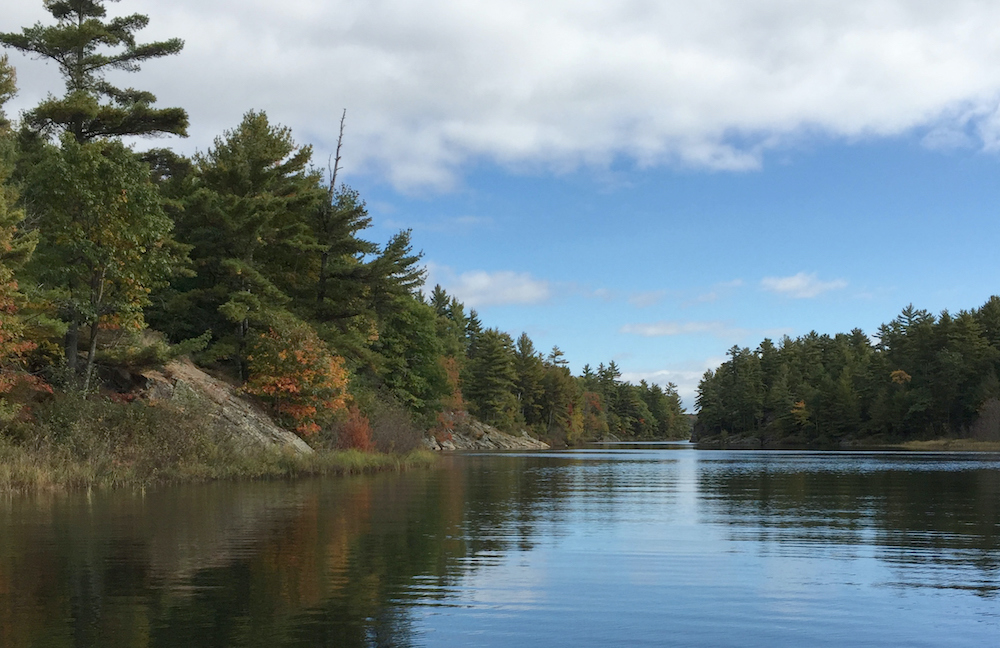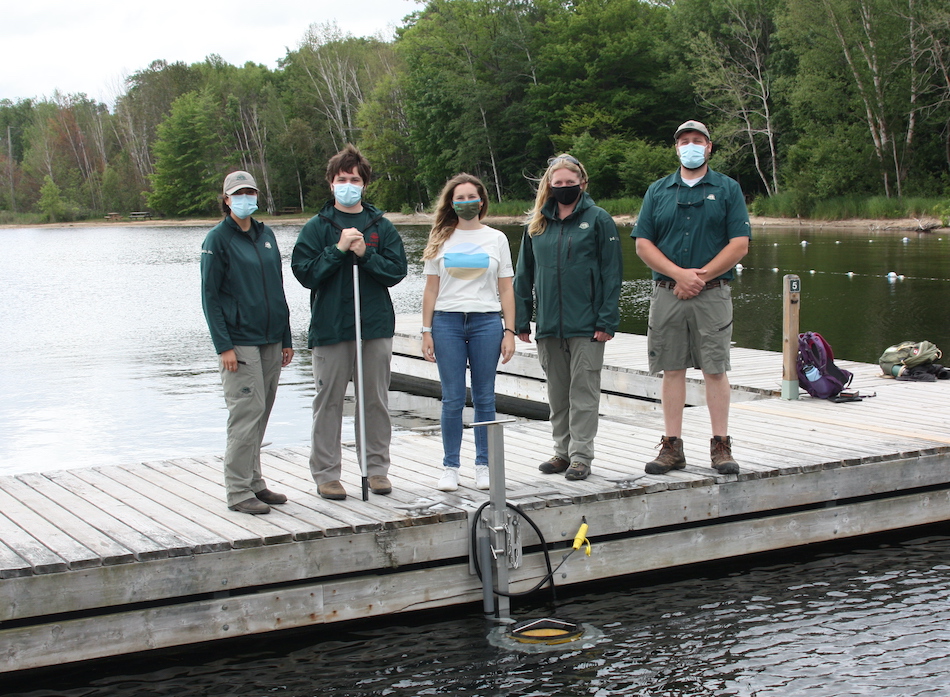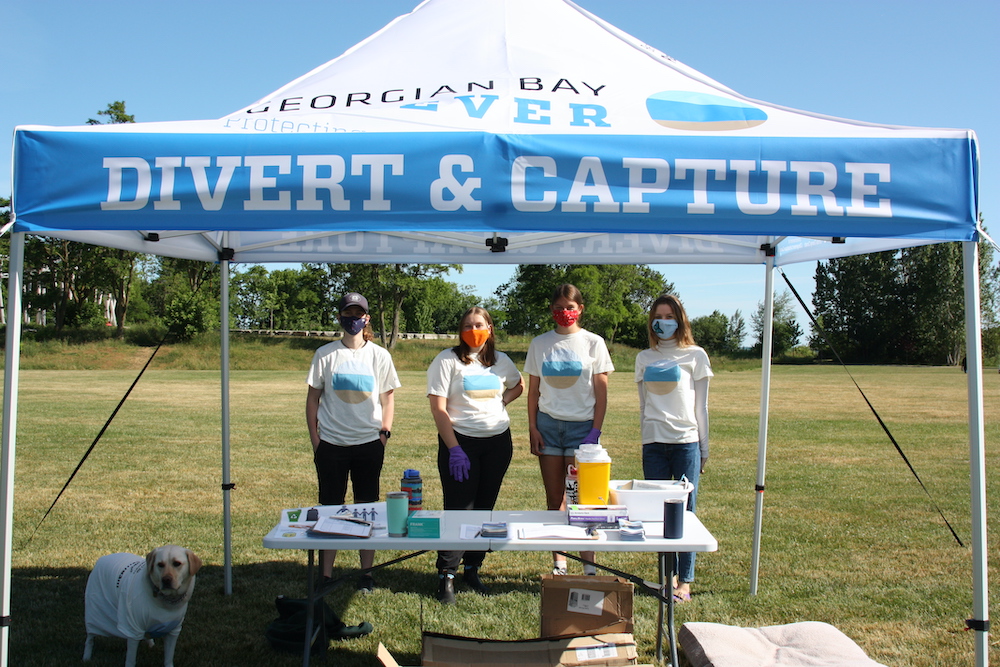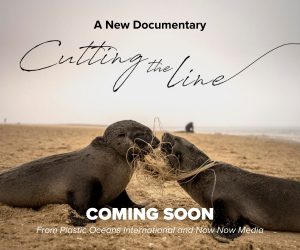Keeping the Georgian Bay Healthy and Thriving for the Future
At an impressive 120 miles long and 50 miles wide, the Georgian Bay, in Ontario, Canada, is one of the largest bodies of freshwater in the world. Divided from the larger part of Lake Huron, and fed by Lake Superior and multiple rivers, the landscape surrounding the lake runs the gamut from rugged, tree-lined rock inlets to the longest freshwater beach on the globe.

The Georgian Bay in Ontario, Canada. Photo: Georgian Bay Forever
And now, Georgian Bay is one of Plastic Ocean’s newest BlueCommunities, with local organization Georgian Bay Forever joining the global family of interconnected partners.
With a vision to keep the waters of Georgian Bay healthy and thriving for the future, and to mitigate the stresses already impacting such a complex freshwater ecosystem, Georgian Bay Forever (GBF) funds and supports research and education which are designed to safeguard the waters of the community.
“GBF works closely with other environmental organizations around the Georgian Bay to collaborate on a number of projects,” explains Nicole Dimond, Project Coordinator at GBF. “None of the local organisations have the capacity on their own to accomplish the much-needed work in the Georgian Bay, so we create valuable partnerships.”

Photo: Georgian Bay Forever
Dimond’s sentence is one which could very well apply to the BlueCommunities program more broadly, with local communities across the world doing incredible work, but punching above their weight when coming together within an international movement.
Although GBF is among the more recent additions to BlueCommunities, they are no strangers to stewarding the waters in the area. GBF was registered as a Canadian Charity way back in 1995, and in the years since have expanded from a loose group of community associations to an organization whose staff and work has grown to allow them to undertake more and more ecosystem protection projects.
Perhaps most important of all, working alongside enthusiastic communities and businesses who support their work has allowed GBF to have a tangible impact on the Georgian Bay. They have helped cut invasive phragmites (an aggressive wetland grass which outcompetes native flora), undertaken regular shoreline cleanups, and conducted waste characterizations on water samples to establish the character and provenance of contaminants.
At GBF, the buzzword is investment in scientific research to protect the natural biodiversity of the waters. At present, there are three key areas of focus for the work at GBF: water levels, water quality, and ecosystem preservation and protection in the Georgian Bay.
“Water level monitoring involves studying the effect climate change is having on the Georgian Bay’s water levels,” says Dimond, “and predicting the kinds of changes we will see in the future. From there we can help the communities around the Georgian Bay adapt to become more resilient to changing water levels and make changes to reduce the negative impacts.”

The GFB Divert and Capture team. Photo: Georgian Bay Forever
Using Autonomous Underwater Vehicles (AUV), GBF can study the effects of climate change on the water quality. Moreover, community volunteers for the Divert and Capture Parry Sound and Collingwood Projects measure and prevent the amount of microplastic pollution in the water using specially created washing machine filters.
Their innovative grounding in science notwithstanding, what makes GFB unique amongst other collaborators in the area is their specific focus on the water and aquatic ecosystems. They also stand atop the rocks of the Georgian Bay and broadcast the importance of their work to the community through workshops and community outreach.
And, as Dimond explains, becoming a part of the BlueCommunities initiative will only enhance their ability to connect with like-minded organisations across the globe: “Being a part of this will not just help us to share the hard work that we have been doing with a broader audience, but will also allow us to learn from Plastic Oceans and other organizations from around the world, who are working on similar projects to make positive changes in their communities.”
Dimond’s point is emphasized by Natasha Tucker, Executive Director of Plastic Oceans Canada: “We’re thrilled to have Georgian Bay Forever as a partner in our BlueCommunities program. The work that they do throughout the expansive Georgian Bay community is critical to the health of this sensitive ecosystem, whether it’s through their microplastics collection system, educating the public on plastic pollution and its impacts on the environment, just to name a few! Partnering with local organizations like GBF reinforces the whole BlueCommunities initiative of focusing on creating change locally to impact the environment globally. We could not be happier to partner with these fabulous people on their efforts within Georgian Bay.”
More broadly, by investing in positive change, Georgian Bay Forever hopes to continue to protect the bay, and indeed, freshwater lakes across the globe, in perpetuity. Something that – whatever the state of today’s fractured world – everyone can get behind.
Shannon Collins is based in the Americas and covers environment and sustainability for a variety of publications as part of the journalism team at Ninth Wave Global.


Trackback: pgroyalbet